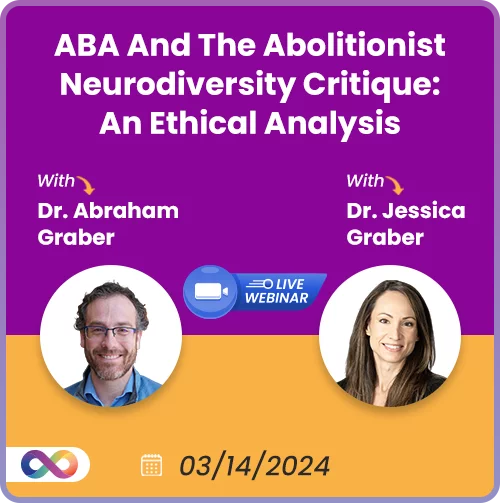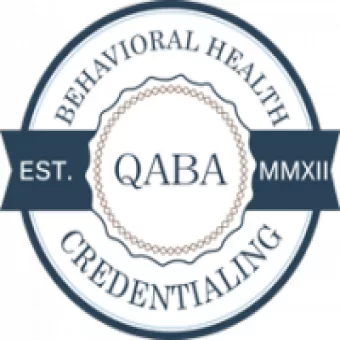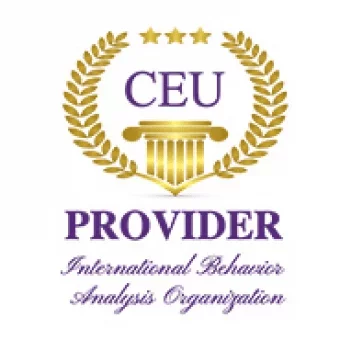
Applied Behavior Analysis and the Abolitionist Neurodiversity Critique: An Ethical Analysis
Subject Matter Experts: Dr. Abraham Graber, PhD & Dr. Jessica Graber, BCBA-D
Host: Maria Nicolaou, MSc BCBA
LIVE WEBINAR: 14 March 2024, 10:00 AM PST - 1 PM EST
CEU ELIGIBILITY:
BACB CEUs: 1 General
QABA CEUs: 1 General
IBAO CEUs: 1 ABA Topics
Are you passionate about Applied Behavior Analysis and committed to staying at the forefront of evidence-based practices? Look no further than Special Learning, your premier destination for a vibrant and collaborative online ABA learning community in our monthly Journal Club.?
In our March webinar presented by Dr. Abraham Graber, PhD and Dr Jessica Graber, BCBA-D. We will be exploring the article “Applied Behavior Analysis and the Abolitionist Neurodiversity Critique: An Ethical Analysis”
Overview:
Introducing an insightful article that addresses the current gap in behavior analytic literature on neurodiversity. This piece sets out to establish a connection between the behavior-analytic and neurodiversity perspectives on autism, highlighting a shared understanding. Despite this alignment, applied behavior analysis (ABA) faces criticism from neurodiversity proponents, particularly concerning the fundamental question of whether it is appropriate to guide individuals with autism to mimic neurotypical behaviors. This critique draws parallels with concerns in language education, framing a discourse that critically evaluates the abolitionist neurodiversity stance on ABA.
Drawing on literature focused on linguistically diverse classrooms, the article navigates through these complex issues to provide a nuanced examination of the ethical considerations surrounding behavior-analytic interventions for autistic clients. By the conclusion, readers will gain insights into both concrete and theoretical implications, offering a comprehensive perspective on the intersection of behavior analysis, neurodiversity, and the ethical dimensions of supporting individuals with autism.
Who Should Attend:
- Professionals in the field of behavior analysis
- Educators, therapists, and caregivers working with individuals on the autism spectrum
- Researchers and students interested in autism studies
- Advocates for diversity and inclusion
Don't miss this opportunity to gain valuable insights into the complexities of autism, behavior analysis, and the ongoing dialogue between professionals and the autistic community. Reserve your spot now for a thought-provoking and informative webinar.?
Learning Objectives
- Describe the core characteristics of the neurodiversity paradigm;
- Explain the relationship between the neurodiversity paradigm and anti-therapy;
- Identify potential uses of applied behavior analysis that are, from the perspective of the neurodiversity paradigm, ethically problematic;
- Articulate the relevance of code-switching to the ethical practice of behavior analysis;
- Discuss components of behavior analytic practice that are, in light of the neurodiversity paradigm, morally obligatory.
MANDATORY DISCLAIMER: The Behavior Analyst Certification Board (“BACB”) does not sponsor, approve or endorse Special Learning, the materials, information, or sessions identified herein.
For cancellations and refunds, please see our policy HERE.







